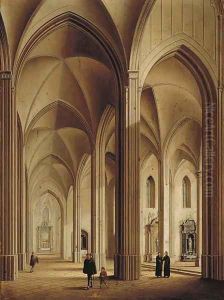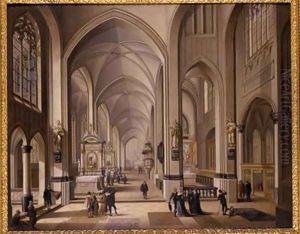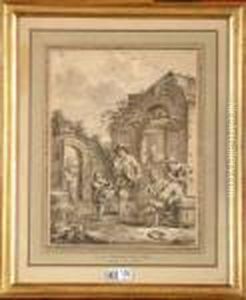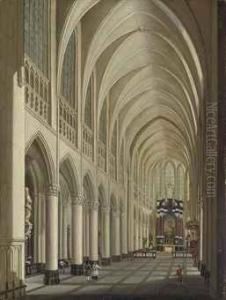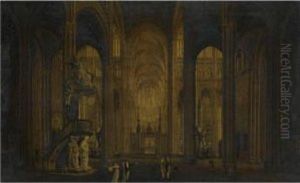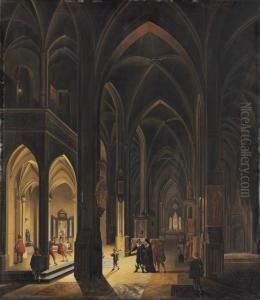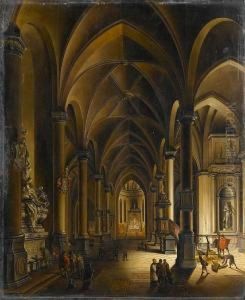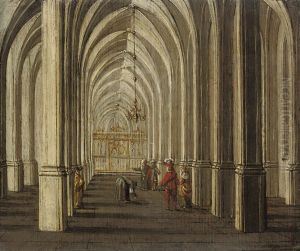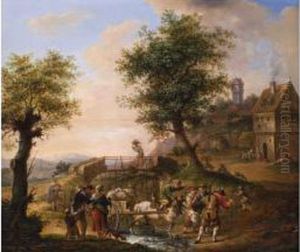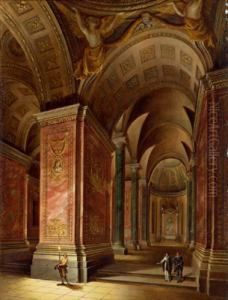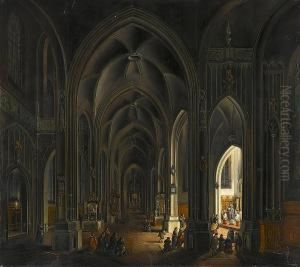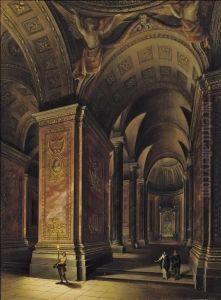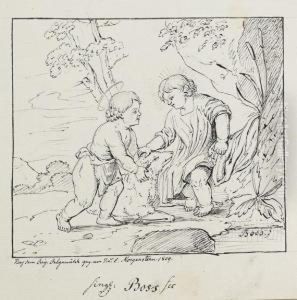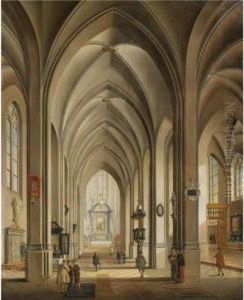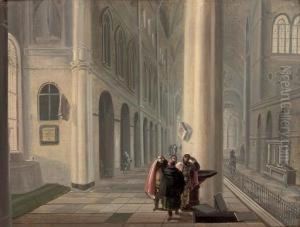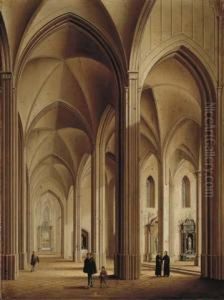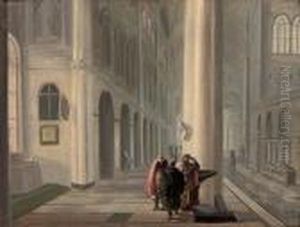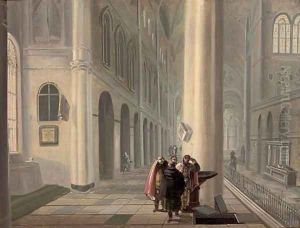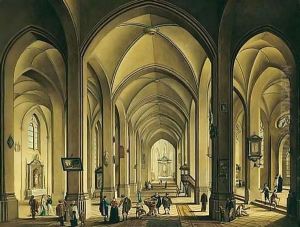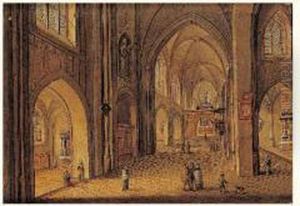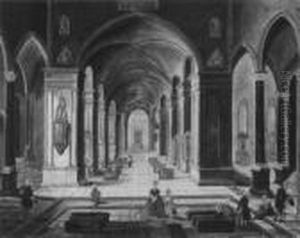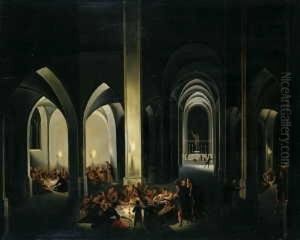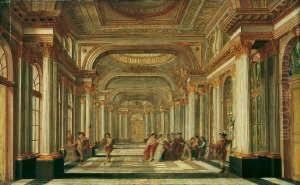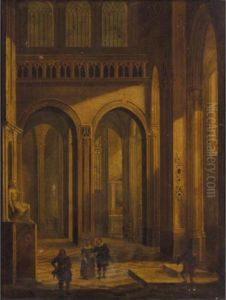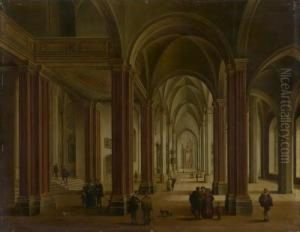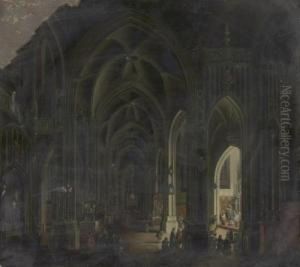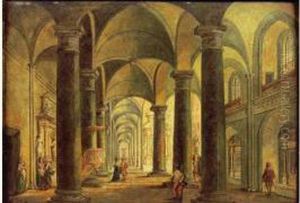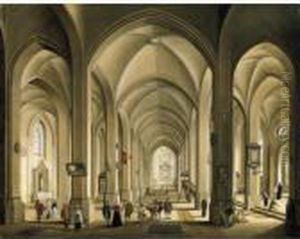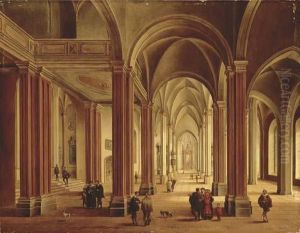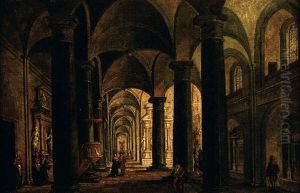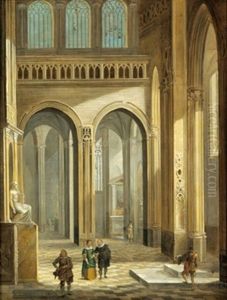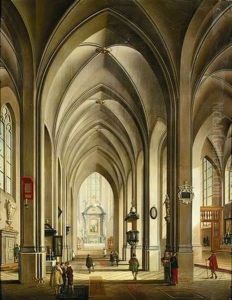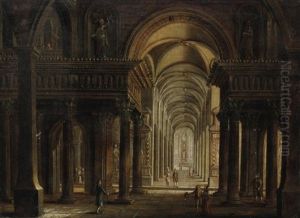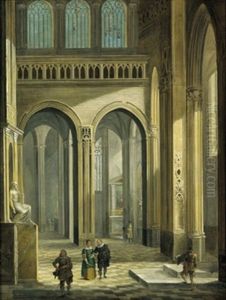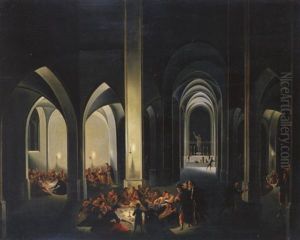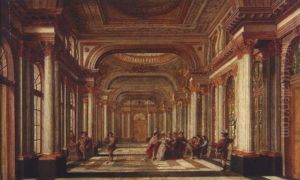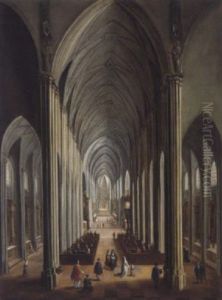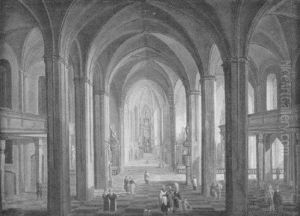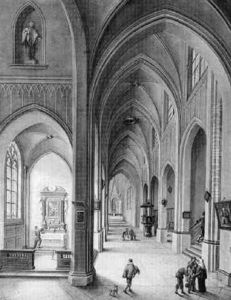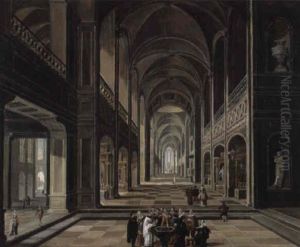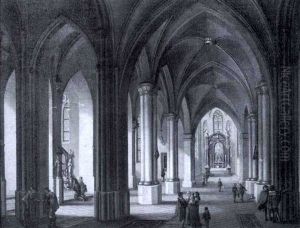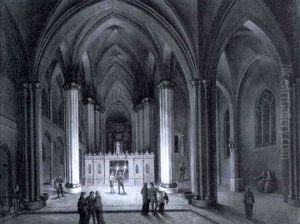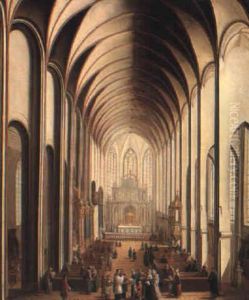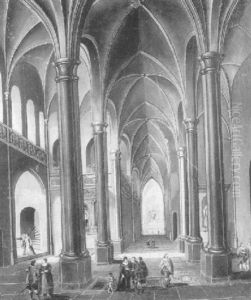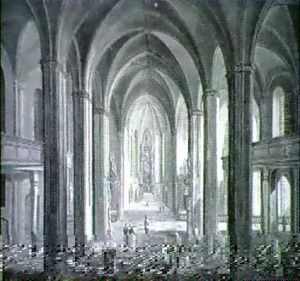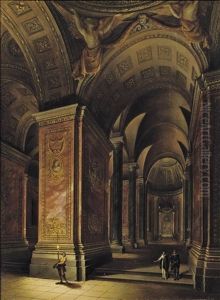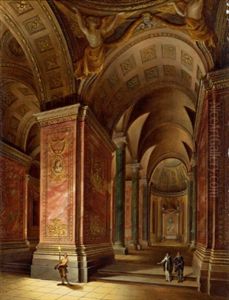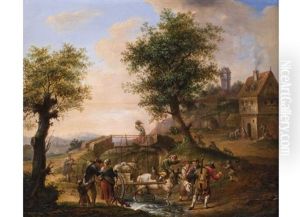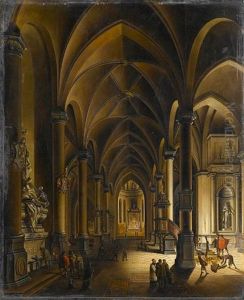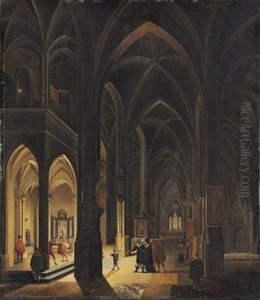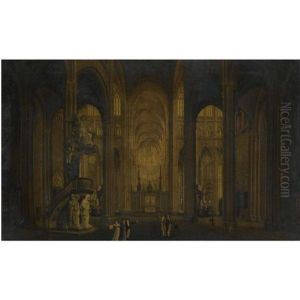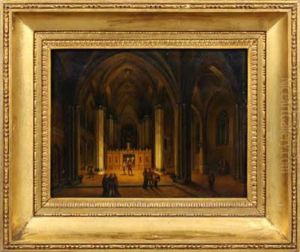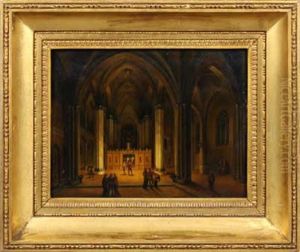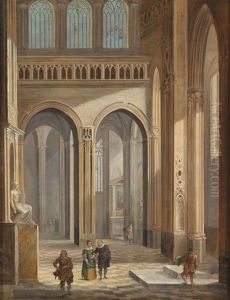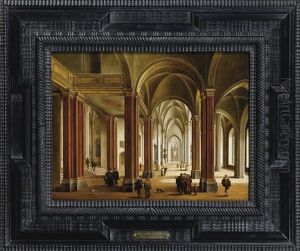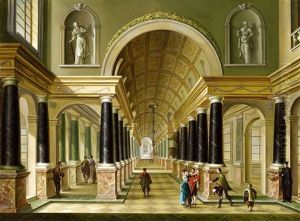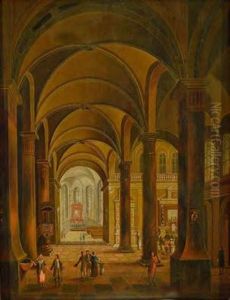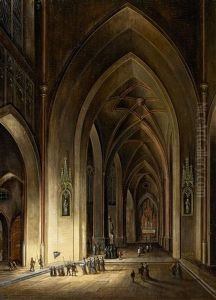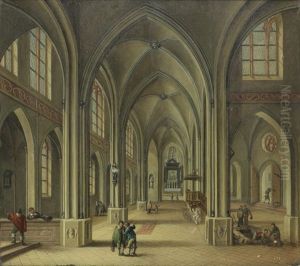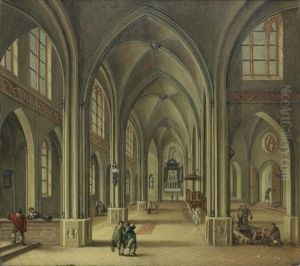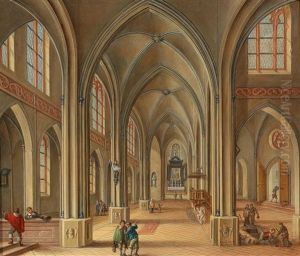Johann Ludwig Ernst Morgenstern Paintings
Johann Ludwig Ernst Morgenstern was a German painter known particularly for his detailed cityscapes and architectural views that capture the spirit of the Enlightenment era in Europe. Born on November 9, 1738, in Frankfurt am Main, Germany, Morgenstern came from a family of painters, which laid the foundation for his artistic career. His father, Johann Andreas Morgenstern, was also a painter, and it is under his guidance that Johann Ludwig Ernst initially trained.
During his formative years, Morgenstern developed a keen interest in capturing urban life and architecture. He became adept at illustrating the intricate details of buildings and the hustle and bustle of city life, skills which would define his artistic output. His works often featured the city of Frankfurt, where he spent most of his life, and provide a valuable visual record of the city during the 18th and early 19th centuries.
In 1760, Morgenstern furthered his studies by attending the Städel Art Institute, which was also located in Frankfurt. His time at the Institute allowed him to refine his technique and gain exposure to a broader range of artistic styles and methods. Despite the influence of other European art movements of his time, Morgenstern maintained a distinctive style that was rooted in realism and meticulous attention to detail.
Morgenstern's work was well-received during his lifetime, and he enjoyed a successful career as an artist. His cityscapes were particularly popular among the rising bourgeoisie, who appreciated his ability to capture the essence of urban prosperity and progress. He also worked on several commissions for local patrons and created illustrations for books, further spreading his reputation as a master of architectural painting.
Throughout his career, Morgenstern remained largely in Frankfurt, where he continued to paint and contribute to the city's cultural scene. His legacy is preserved in the numerous paintings he left behind, which provide insight into the architectural and urban development of Frankfurt and serve as an important part of Germany's cultural heritage.
Johann Ludwig Ernst Morgenstern passed away on March 26, 1819, leaving behind a body of work that remains appreciated for its historical value and artistic merit. Today, his paintings can be found in various art collections and museums, attesting to his enduring impact on the art world and his role in documenting the transformation of urban European landscapes during a pivotal period in history.
